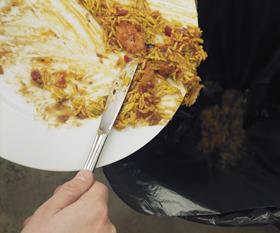
The UK will have nationwide food waste collections by 2023 after a new EU recycling directives becomes binding next month.
The EU's Circular Economy Package published in their Official Journal this week will require member states to meet recycling targets of municpal waste of 65 per cent by 2035.
The package will be binding on member states from 4th July, after which they will have two years to transcribe it into their own national laws. Accoridng to the Official Journal, the UK has signaled it will adopt the directive despite having left the EU by then.
Currently around half of British boroughs collect food, with no legal requirements for authorities to provide a food waste collection service.
Responding to the news, David Newman, president of the World Biogas Association said: “It’s great to see that the new targets in the EU’s Circular Economy Package, particularly those for municipal waste and separate biowaste (food waste) collections, will enter into European law in just over a fortnight’s time.
“There are huge environmental, economic, and human-health benefits to separately collecting inedible food waste and recycling it into valuable resources using biogas technologies – our latest report suggests that doing this on a global scale would have the same impact in terms of CO2 emissions reduction as taking all cars in the EU off the road.
“Local authorities and municipalities across Europe now need to get ready to bring in food waste collections ahead of the legal deadline of December 2023.”
Inedible food waste can be recycled through AD into biogas (which can be used to generate renewable heat and electricity and as a clean transport fuel) and digestate, which can be applied directly to land as a nutrient-rich biofertiliser.
Charlotte Morton, chief executive of the UK Anaerobic Digestion & Bioresources Association (ADBA), said:
“We fully expect the UK to implement these targets as an existing member of the EU. ADBA has campaigned long and hard for separate food waste collections to be brought in across England to emulate the successful examples set by Scotland, Wales, and Northern Ireland in separating and recycling inedible food waste through AD, so this is a huge moment for the circular economy in the UK.
“December 2023 is just over five years away, so local authorities in England need to start factoring the requirement for separate food waste collections into their plans and use contract renewals as an opportunity to introduce collections at the lowest possible cost and with maximum effectiveness.”
The World Biogas Association will hold the UK launch of the report at the AD & World Biogas Expo at Birmingham’s NEC, on 11 – 12 July, featuring workshops and panel sessions on food waste and collections.



